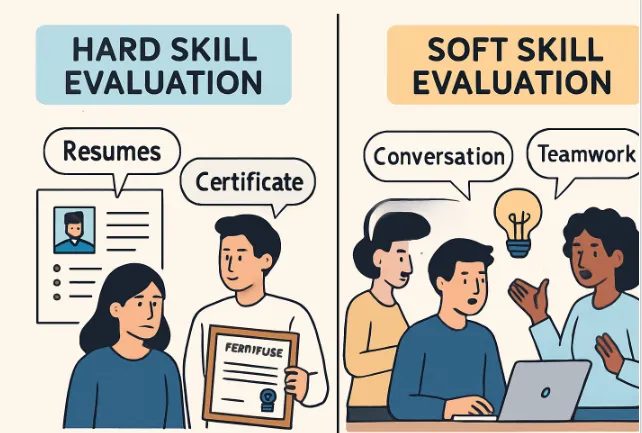Why Many Interviews Miss Soft Skills—and How to Fix That
Introduction
In today’s rapidly evolving job market, technical expertise is essential, but it’s no longer the sole factor in hiring decisions. Increasingly, organizations understand that attributes like adaptability, empathy, and collaboration make the difference between a high-performing team and one that falls short. Unfortunately, traditional interviews often overlook these critical competencies. For hiring managers looking to improve their process, exploring resources on soft skill interview questions can be an effective first step toward meaningful change.
Also Read: How the Philippines Became a Global Hub for Outsourced Talent
Soft skills shape how employees interact, solve problems, and navigate challenges—qualities vital for sustained business success. Still, many interview processes focus on resumes and certifications, bypassing deeper signals of future performance. The result? Missed opportunities and hiring mismatches can be costly for organizations in terms of time and resources.
When teams rely too heavily on evaluating hard skills, they risk hiring individuals who may excel on paper but struggle in real workplace dynamics. Those who can’t adapt, communicate, or resolve conflicts may hamper project progress and create team tension.
Behind every failed hire is often a story—not of lacking technical knowledge, but of missing the nuanced, crucial qualities that foster trust and collaboration. Understanding the pitfalls of current interview strategies and recalibrating your approach makes it possible to hire not just for ability, but for impact and long-term fit.
The Overemphasis on Hard Skills
Many hiring processes involve assessing quantifiable achievements: degrees, certifications, coding tests, and portfolios. While these provide essential information, focusing exclusively on demonstrable technical prowess often comes at the expense of evaluating how a person will mesh with the existing team or company culture. For example, someone may be an outstanding developer but struggle to provide or accept constructive feedback, leading to stalled projects and unresolved issues. Organizations that overlook interpersonal skills are more likely to encounter issues with communication breakdowns and poor morale.
Also Read: Huntington Home Candles: Scents, Quality, and More
The Consequences of Neglecting Soft Skills
The problems tied to missed soft skill assessment are well-documented:
- Poor Team Dynamics: A lack of emotional intelligence or active listening can disrupt trust and collaboration, leading to unresolved conflict and silos within the organization.
- Reduced Productivity: Miscommunication and unclear expectations can result in duplicated effort, costly mistakes, or missed deadlines.
- High Turnover Rates: When employees feel misunderstood, unsupported, or disconnected from coworkers, they’re more likely to leave, creating a feedback loop of recruitment, onboarding, and lost productivity.
Studies have shown that turnover due to poor culture fit or interpersonal challenges can cost companies up to twice the departing employee’s salary, according to reporting by Forbes.
Common Pitfalls in Assessing Soft Skills
Many interviews rely on unstructured conversations, surface-level questions, or intuition to judge traits like communication, leadership, and adaptability. This approach introduces significant bias, as friendly or extroverted candidates may be perceived as collaborative, while quieter individuals are sometimes overlooked for leadership or team-oriented roles.
Without a reliable or consistent method for probing soft skills, interviewers may miss context, misinterpret behaviors, or fail to distinguish genuine strengths from surface-level charm. Over time, these errors can skew team culture, reducing diversity of thought and opportunity.
Strategies to Effectively Assess Soft Skills
- Standardize Interview Questions: Creating a clear set of behavioral and situational questions around traits like conflict resolution, flexibility, and collaboration minimizes bias and ensures candidates are judged on merit, not personality alone.
- Implement Structured Assessments: Simulations, real-time group exercises, or role-playing scenarios create opportunities to observe communication style, emotional regulation, and teamwork under pressure, painting a clearer picture of candidate potential.
- Train Interviewers: Ongoing training ensures hiring teams know which soft skills to seek, how to probe for examples, and how to rate responses objectively. Seasoned interviewers can recognize the difference between practiced answers and authentic competencies.
Integrating Soft Skills Assessment into the Hiring Process
Enterprises that want to future-proof their workforces should take systematic steps to integrate soft skills assessment:
- Define Key Soft Skills: Identify which soft skills are essential to success in a given role, considering company values and team culture.
- Develop Assessment Tools: Use targeted tests, realistic simulations, or collaborative tasks aligned with critical skills.
- Review and Refine: Consistently monitor and improve methods based on measurable outcomes, candidate feedback, and long-term employee success.
By following these steps, organizations can create a more inclusive hiring process, reduce turnover, and foster stronger, more adaptable teams.
Final Thoughts
Technical skills remain vital, but their impact is limited without interpersonal abilities to match. Soft skills are foundational not just for team chemistry, but for navigating change, leading projects, and maintaining organizational health. Refined interview processes that prioritize soft skill assessment help build cohesive, high-impact teams—and ensure companies are well-equipped for future challenges.







